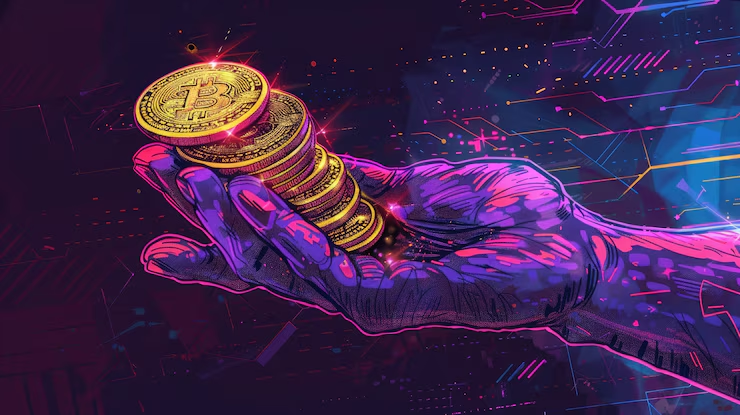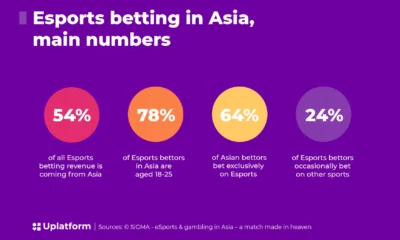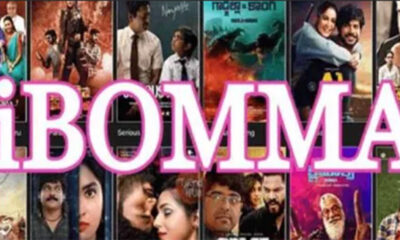Blog
Exploring the Rap-Quotes.com Blog Archives: A Journey Through Hip-Hop History
Published
7 months agoon

Rap has long been a powerful vehicle for self-expression, creativity, and social commentary. As one of the most influential musical genres, rap has evolved significantly since its inception, branching into various styles and cultures. Rap-Quotes.com Blog Archives has been an essential platform dedicated to preserving and curating some of the most iconic lines, verses, and lyrical masterpieces in the genre. In this article, we delve into the archives of the Rap-Quotes.com blog, exploring how this platform honors the essence of hip-hop through curated content, artist highlights, and deep dives into the culture.
Table of Contents
A Brief History of Rap-Quotes.com
Rap-Quotes.com Blog Archives was launched with the goal of celebrating the lyrical brilliance of rap and hip-hop artists from different generations. From the pioneers of the 1980s, such as Run-D.M.C., Public Enemy, and N.W.A., to modern-day icons like Kendrick Lamar, J. Cole, and Drake, the platform has cataloged the evolution of rap lyrics over decades. It provides a comprehensive resource for both casual fans and hardcore enthusiasts who wish to explore or rediscover the art form.
The blog archives serve as a treasure trove for anyone interested in learning more about the intricate stories behind the lyrics. Each article and blog post typically covers a specific aspect of hip-hop, such as influential artists, groundbreaking albums, or sociocultural themes within the music. The site’s archives offer a deep, educational dive into the world of rap.
Lyrical Dissection: Decoding the Art of Wordplay
One of the most valuable aspects of theRap-Quotes.com Blog Archives is its series on lyrical dissection. Rap is known for its clever wordplay, metaphors, double entendres, and deep storytelling, often hidden beneath layers of fast-paced delivery. The blog breaks down iconic verses from various rap legends, uncovering the hidden meanings and cultural references that casual listeners may miss.
For example, the blog explored Tupac Shakur’s famous lyric, “I see no changes, all I see is racist faces,” from his song Changes. The article examined how this line encapsulated Tupac’s deep frustration with societal issues, racism, and inequality, offering a broader context to the struggles of African Americans during the 1990s. This breakdown reveals how a seemingly simple line can hold immense weight and depth.
Similarly, the blog dives into complex verses from artists like Nas, whose wordplay in Illmatic is still regarded as some of the most intricate in hip-hop history. The lyrical analysis of Nas’ “The world is yours” sheds light on the poet’s storytelling abilities, exploring the dualities of his personal experiences growing up in Queensbridge while addressing larger societal issues.
Highlighting Influential Albums
Another cornerstone of the Rap-Quotes.com blog archives is its album retrospectives. Hip-hop has produced countless landmark albums that have shaped the genre and culture. From Public Enemy’s politically charged It Takes a Nation of Millions to Hold Us Back to Kanye West’s sonically groundbreaking My Beautiful Dark Twisted Fantasy, the blog covers some of the most significant rap albums, providing historical context, critical analysis, and insight into their impact on the genre.
Each retrospective post offers a glimpse into how these albums were received upon their release, the socio-political climate at the time, and their long-term influence on both hip-hop and mainstream music. For instance, the blog’s piece on Kendrick Lamar’s To Pimp a Butterfly delves into the way the album navigated themes of racial injustice, self-love, and the complexities of fame. The analysis celebrates Lamar’s ability to weave jazz, funk, and soul into modern rap, effectively expanding the boundaries of what hip-hop could be.
Unsung Heroes: Shining a Light on Lesser-Known Artists
While mainstream rap stars often receive the lion’s share of the attention, the Rap-Quotes.com Blog Archives goes the extra mile to highlight unsung heroes of the genre. These lesser-known artists may not dominate the charts, but their contributions to the culture and their unique lyrical abilities make them worthy of recognition. The blog archives feature in-depth profiles on underground rappers, regional heroes, and those who helped push hip-hop forward from the fringes.
For example, artists such as MF DOOM, who is revered for his complex rhyme schemes and experimental production, have been given their due on Rap-Quotes.com Blog Archives. The blog’s feature on MF DOOM emphasizes his influence on alternative hip-hop and his lasting legacy as one of the genre’s most enigmatic figures. Likewise, other posts focus on regional artists, like Bay Area legends Too Short and E-40, or Atlanta pioneers like OutKast, who helped shape Southern rap’s distinctive sound.
Rap Quotes and Social Justice
Rap has always been a voice for the marginalized, and Rap-Quotes.com Blog Archives recognizes this with its focus on socially conscious rap lyrics. The blog archives contain multiple entries examining how hip-hop has been used to address issues such as systemic racism, poverty, police brutality, and inequality. Artists like Public Enemy, Immortal Technique, and Killer Mike have been highlighted for their politically charged lyrics that resonate with global movements for social justice.
In one particularly moving blog post, Rap-Quotes.com Blog Archives reflected on the lyrics of Nipsey Hussle, analyzing how his music served as a beacon of hope for his community. Nipsey’s message of economic empowerment, black entrepreneurship, and self-reliance spoke to a generation that grew up in the shadows of systemic discrimination. His untimely passing only solidified his position as a martyr for social change within the rap community.
The Role of Women in Hip-Hop
Rap-Quotes.com Blog Archives also makes a concerted effort to highlight the contributions of female rappers to the genre. From trailblazers like Queen Latifah and Lauryn Hill to contemporary powerhouses like Cardi B, Nicki Minaj, and Megan Thee Stallion, the blog acknowledges the impact women have had in shaping rap’s narrative.
The blog archives contain numerous articles that explore how female rappers have used their platforms to challenge misogyny, redefine gender roles, and carve out space in a male-dominated industry. The blog’s deep dive into Lauryn Hill’s The Miseducation of Lauryn Hill emphasized her role in blending rap with neo-soul, while still delivering sharp social commentary on topics like race, identity, and spirituality.
The Evolution of Battle Rap
One of the most popular aspects of rap culture is battle rap, where MCs engage in competitive lyrical sparring. The Rap-Quotes.com blog archives take an extensive look at the history of battle rap, from the early days of Kool Moe Dee and LL Cool J to today’s viral battle leagues, such as URL (Ultimate Rap League).
Battle rap has always been about more than just clever insults—it’s an art form that demands intricate wordplay, quick thinking, and a deep understanding of rhythm and flow. The blog’s coverage of this competitive side of hip-hop not only focuses on the battles themselves but also the cultural impact and the skills required to succeed in the arena.
Conclusion: Why Rap-Quotes.com Matters to Hip-Hop Culture
Rap-Quotes.com Blog Archives has established itself as a cornerstone for the preservation and exploration of hip-hop culture. Its blog archives offer a comprehensive and insightful look into the world of rap, covering a wide range of topics from lyrical analysis to social commentary, from album retrospectives to highlighting unsung heroes. Through its dedication to curating the art form, Rap-Quotes.com has ensured that the brilliance of hip-hop lyrics is preserved for future generations.
For fans of the genre, the blog archives are an invaluable resource, providing not only nostalgia but also a deeper understanding of the impact and influence rap has had on society. As rap continues to evolve, platforms like Rap-Quotes.com will play an essential role in documenting its rich history and ever-changing future.
FAQs: Rap-Quotes.com Blog Archives
1. What is Rap-Quotes.com?
Rap-Quotes.com is a platform dedicated to curating and showcasing some of the most iconic rap and hip-hop lyrics from across generations. It provides in-depth analysis, historical context, and artist profiles, making it a valuable resource for rap enthusiasts, students of music, and cultural scholars.
2. What can I find in the Rap-Quotes.com blog archives?
The blog archives contain a vast collection of posts, covering:
- Lyrical dissections and analysis
- Album retrospectives
- Profiles of iconic and unsung rap artists
- Social justice themes in rap music
- The evolution of battle rap
- Features on the role of women in hip-hop These archives serve as a rich resource for understanding hip-hop culture through its lyrics.
3. How often are new blog posts added to the archives?
The blog is updated regularly with new content, although the frequency can vary. Posts typically coincide with significant events in the hip-hop world, such as anniversaries of landmark albums, tributes to legendary artists, or breaking down the lyrics of new releases.
4. Who writes for Rap-Quotes.com?
The articles and posts in the blog archives are typically written by hip-hop scholars, music critics, and rap enthusiasts. The authors often have a deep understanding of rap history, lyricism, and the broader cultural impact of the genre.
5. Is there a specific focus or theme in the archives?
The focus of the blog is diverse. It spans from lyrical analysis of rap verses to cultural exploration, covering everything from rap battles to the role of social justice in hip-hop. The blog is designed to cater to different interests, whether you are interested in the technical aspects of rap or the cultural movements behind the music.
6. Can I suggest topics or artists for the blog to cover?
Yes, many platforms like Rap-Quotes.com often encourage fan participation. You can reach out to them via the contact form on the website, social media platforms, or email to suggest topics, lyrics, artists, or albums you’d like to see featured in the blog.
7. Are all types of rap covered in the blog?
Yes, the blog covers a wide range of rap styles and subgenres. From the golden age of hip-hop to modern trap, the blog archives highlight contributions from artists across different eras, regions, and styles. Whether you’re into conscious rap, battle rap, or mainstream hits, you’ll find content that resonates with your tastes.
8. How do I search for specific lyrics or artists in the archives?
The site typically has a search function that allows you to enter keywords, artist names, or specific lyrics. Additionally, blog posts are often categorized, making it easier to navigate topics such as “album retrospectives,” “social justice in rap,” or “women in hip-hop.”
9. Do the archives feature international rap artists?
While the focus of the site is largely on American rap and hip-hop, there are also posts that cover international rap scenes, from the UK grime movement to Latin American and French rap. The blog recognizes the global impact of hip-hop and occasionally features artists outside of the U.S.
10. Can I contribute to Rap-Quotes.com as a guest writer?
If you have expertise or a passion for hip-hop, you may be able to contribute as a guest writer. Many blogs in the hip-hop community welcome collaborations with freelance writers, industry insiders, and rap fans. It’s best to contact the site’s editorial team to inquire about guest contributions.
11. Are there any interactive features on Rap-Quotes.com?
While the blog is mainly text-based, some posts may include comment sections for discussion or polls that engage with the community. In addition, the blog may feature links to social media discussions, allowing fans to continue the conversation beyond the post.
12. How does Rap-Quotes.com analyze rap lyrics?
The lyrical analysis provided in the blog goes beyond the surface, focusing on:
- Wordplay, metaphors, and double entendres
- Cultural references and historical context
- Artist intent and broader societal impact These dissections are done with an appreciation for the complexity of rap as an art form, uncovering layers that listeners may not immediately notice.
13. Can I use content from Rap-Quotes.com for academic or personal projects?
You can reference blog posts for academic research or personal use, but it’s important to properly cite the material. Rap-Quotes.com content is usually copyrighted, so direct reproduction of full articles without permission is prohibited. Check the site’s terms of use for more specific guidelines.
14. How do I stay updated with new posts from Rap-Quotes.com?
You can subscribe to their newsletter (if available), follow them on social media platforms, or regularly visit the blog. Many readers also use RSS feeds to keep up with new content.
15. Can I share blog posts on social media?
Yes, blog posts can typically be shared on social media. The website may have direct sharing buttons for platforms like Twitter, Facebook, and Instagram. Sharing insightful posts helps spread the knowledge and love for rap within the larger community.
16. What sets Rap-Quotes.com apart from other hip-hop blogs?
Rap-Quotes.com stands out for its focus on lyricism. While other hip-hop platforms might focus on the latest news, gossip, or music reviews, Rap-Quotes.com prioritizes the art of words and the deeper meaning behind rap verses. This makes it a unique destination for fans who appreciate the intricacies of rap as poetry.
You may like
Blog
The Ultimate Guide to eCrypto1.com: A Deep Dive into the World of Cryptocurrency
Published
1 day agoon
May 9, 2025
Cryptocurrency has reshaped the financial landscape in the last decade, offering a decentralized and digital alternative to traditional currency. As the world becomes increasingly reliant on blockchain technology and digital assets, platforms like eCrypto1.com are emerging as key players in providing access to the exciting realm of crypto trading, investments, and education. In this guide, we will explore everything you need to know about eCrypto1.com, its features, services, and how it stands out in the rapidly growing cryptocurrency market.
Understanding eCrypto1.com and Its Role in the Cryptocurrency Ecosystem
eCrypto1.com is a cryptocurrency platform designed to cater to both novice and experienced traders. It offers a wide range of services, from trading and investment options to educational resources aimed at empowering users to make informed decisions in the volatile crypto market. As the digital currency ecosystem grows, eCrypto1.com leverages cutting-edge technology and comprehensive tools to simplify crypto trading.
What Makes eCrypto1.com Stand Out?
In a crowded market of cryptocurrency exchanges and platforms, eCrypto1.com has positioned itself as a reliable resource for traders and investors alike. It combines an intuitive user interface, robust security protocols, and an educational arm that equips users with the knowledge needed to thrive in the world of crypto.
Some of the key features of eCrypto1.com include:
- Advanced Trading Tools: eCrypto1.com provides state-of-the-art trading tools for both beginners and experienced traders. These include real-time market data, customizable charts, and automated trading strategies to make informed and effective trading decisions.
- User-Friendly Interface: The platform is designed to be intuitive and easy to navigate, making it accessible to people with varying levels of experience.
- Security and Compliance: eCrypto1.com prioritizes the security of its users’ data and funds. With encryption protocols, two-factor authentication (2FA), and regular audits, the platform offers a secure environment for crypto transactions.
- Comprehensive Educational Resources: eCrypto1.com offers a range of educational materials, including articles, tutorials, and webinars, to help users understand the nuances of cryptocurrency markets and trading strategies.
A Comprehensive Overview of eCrypto1.com’s Services
Crypto Trading and Investment Options
eCrypto1.com offers access to a diverse selection of cryptocurrencies, enabling users to trade some of the most popular digital assets such as Bitcoin (BTC), Ethereum (ETH), Ripple (XRP), Litecoin (LTC), and many others. The platform supports both spot trading and leveraged trading, allowing traders to access various levels of risk and reward.
Spot Trading:
Spot trading allows users to buy and sell cryptocurrencies directly on the platform. eCrypto1.com offers competitive spreads and low transaction fees, making it an attractive option for both individual and institutional traders.
Leveraged Trading:
For those looking to amplify their potential returns, eCrypto1.com provides leveraged trading. With leverage, traders can borrow funds to increase the size of their trades, potentially increasing profits. However, leveraged trading comes with increased risk, so it is essential to understand market dynamics thoroughly.
Staking and Earning Passive Income
Staking is another way eCrypto1.com provides its users with an opportunity to earn passive income. By staking cryptocurrencies, users contribute to the security and functionality of a blockchain network. In return, they earn staking rewards, typically in the form of additional tokens or coins.
eCrypto1.com supports staking for various cryptocurrencies, offering users an easy way to grow their digital assets without having to actively trade. The platform offers competitive staking yields, making it a great option for long-term investors.
eCrypto1.com’s Advanced Trading Tools
One of the standout features of eCrypto1.com is its comprehensive suite of advanced trading tools. These tools are designed to help traders analyze market trends, execute trades efficiently, and enhance their trading strategies. Some of the key features include:
- Real-Time Market Data: eCrypto1.com offers up-to-the-minute market data, which is critical for making informed trading decisions. This data includes live price charts, order book information, and market depth analysis.
- Technical Analysis Tools: With a range of charting tools, traders can analyze market trends, indicators, and patterns to make data-driven decisions. Tools like moving averages, Bollinger Bands, and RSI (Relative Strength Index) are available to assist in technical analysis.
- Automated Trading: eCrypto1.com offers automated trading bots, allowing traders to set specific criteria for buying or selling cryptocurrencies based on market conditions. This feature can save time and ensure more precise trades, particularly for busy traders.
Security Measures on eCrypto1.com
Security is a top priority for eCrypto1.com. The platform uses a range of security measures to protect both user funds and personal information. These measures include:
- Two-Factor Authentication (2FA): Users can enable 2FA to add an extra layer of security when logging into their accounts. This feature ensures that only authorized individuals can access user accounts.
- Cold Storage: The majority of user funds are stored in cold wallets, which are offline and inaccessible to hackers. This significantly reduces the risk of theft or loss.
- Regular Audits: eCrypto1.com undergoes regular security audits to ensure that its platform remains secure against emerging threats.
By employing these robust security practices, eCrypto1.com offers a safe environment for users to trade and invest in cryptocurrencies with peace of mind.
Educational Resources on eCrypto1.com
eCrypto1.com takes education seriously, providing a wealth of resources to help users understand the complexities of the cryptocurrency market. These educational resources cover a wide range of topics, including:
- Crypto Basics: New users can access beginner-friendly guides to understand key concepts such as blockchain, wallets, and private keys.
- Advanced Trading Strategies: For experienced traders, eCrypto1.com offers advanced tutorials on technical analysis, risk management, and trading psychology.
- Market Insights: The platform regularly publishes market analysis and insights, helping users stay informed about market trends, upcoming coin releases, and news impacting the crypto space.
These resources empower users to make informed decisions and develop successful trading strategies.
Why Choose eCrypto1.com Over Other Platforms?
With a wide range of platforms offering cryptocurrency services, it can be difficult to decide which one to use. However, eCrypto1.com stands out for several reasons:
- User-Centric Design: The platform’s user interface is designed to be intuitive, making it accessible to traders at all levels of experience.
- Comprehensive Services: From trading and staking to education, eCrypto1.com offers a one-stop-shop for all your cryptocurrency needs.
- Robust Security: The platform’s top-tier security measures ensure that your data and funds are protected at all times.
- Low Fees and Competitive Spreads: eCrypto1.com offers some of the lowest fees in the industry, allowing traders to keep more of their profits.
By combining these features, eCrypto1.com has earned its place as a top choice for cryptocurrency traders and investors.
Conclusion
As the cryptocurrency market continues to expand, platforms like eCrypto1.com are playing an essential role in helping individuals and businesses navigate this rapidly evolving space. Whether you’re a beginner or an experienced trader, eCrypto1.com offers a secure, user-friendly environment to explore crypto trading, investment, and education. With advanced trading tools, robust security, and valuable educational resources, eCrypto1.com is poised to remain a key player in the crypto world.

The mists of time have long hidden the true story of the Hizzaboloufazic—an ancient civilization whose legends, remnants, and cryptic philosophy have puzzled scholars, dreamers, and mystics for centuries. While little is concretely known, new archeo-mythological studies and linguistic reconstructions have brought to light the enigmatic tale of a people once believed to be lost in the folds of myth.
Origins of the Hizzaboloufazic
The name “Hizzaboloufazic” is thought to derive from an ancient root language—possibly a fusion of proto-Erythrean and lost Arakalic tongues—meaning “those who echo the breath of the sky.” First references to this civilization appeared in fragmented inscriptions uncovered in the scorched plains of northern Zaballah, etched into obsidian monoliths too advanced for their estimated age of 9,000 years.
According to mythological texts found in the Book of Yilazon, the Hizzaboloufazic were said to be descendants of a sky-walker named Fazic, who taught them the way of the “Seven Winds”—a sacred system of harmony between human intention and the rhythms of nature. Whether Fazic was a spiritual teacher, a celestial being, or a metaphor for collective wisdom remains a subject of scholarly debate.
Society and Structure
The Hizzaboloufazic were a theosophical society, blending early astronomy, music, and elemental mysticism. Their society was organized into concentric orders:
- The Echelar (Voice-Guides): Spiritual leaders who interpreted cosmic winds and translated them into chants that determined agricultural, political, and relational decisions.
- The Scintari (Pattern-Makers): Engineers and artists who built their resonant cities using sound-based construction methods.
- The Vayreni (Wind-Runners): Messengers and travelers who maintained contact with scattered colonies by decoding the language of migratory birds and wind patterns.
They rejected rigid hierarchies and favored fluid, consensus-driven leadership where roles rotated based on lunar cycles and inner aptitude.
Architecture and Technology
Perhaps the most intriguing aspect of the Hizzaboloufazic was their use of “resonant geometry”—a blend of sound and form. Their buildings, though rarely preserved, were said to hum in perfect harmony with the wind. Musical instruments discovered near the ruins of Tel-Uban are tuned to microtonal scales not found in any other known ancient culture, suggesting a unique understanding of vibration and acoustics.
Recent excavations led by Dr. Kema Lorr in 2023 revealed what is believed to be the “Hall of Breath,” a domed amphitheater designed to amplify whispered words across a 300-meter distance without echo or distortion. This aligns with Hizzaboloufazic lore, which claimed, “He who whispers true will be heard by all, even if buried in time.”
Philosophy and Spirituality
Central to their worldview was the concept of “Resonance”—the belief that all beings and objects carried a unique frequency that, when aligned with others, created harmony and prosperity. This prefigures later concepts found in Taoism, Vedic traditions, and even quantum resonance theories.
The Hizzaboloufazic saw conflict as dissonance, to be resolved not by force but by attunement. Rituals involved musical sessions, guided breathing, and the use of sacred “wind flutes” to bring disharmonious communities back into alignment.
Their texts emphasize that existence is not linear, but a spiral, where past and future echo through present decisions—a belief encapsulated in their phrase, “The echo becomes the breath.”
Decline and Disappearance
Around 2500 BCE, records of the Hizzaboloufazic vanish from both archaeological and oral traditions. Some speculate a climactic event—possibly an air-bound plague, or a tectonic inversion of the Great Wind Basin—led to their dispersal. Others believe they chose to “resonate out”—a metaphysical migration beyond the material world, which some mystics interpret as ascension or dimensional folding.
Traces of their influence appear in disparate places: spiral wind symbols in Andean petroglyphs, harmonic stones in Celtic ruins, and even in the Navajo wind chants. Could these be remnants of the Hizzaboloufazic diaspora? The mystery endures.
Modern Interpretations
In recent years, artists, composers, and spiritual seekers have embraced the legacy of the Hizzaboloufazic. Sound healing communities have adopted their philosophies, while architects experiment with acoustically tuned living spaces inspired by resonant geometry. The term “Hizzaboloufazic” has even entered avant-garde circles as a descriptor for harmony in chaos, complexity, and beauty through balance.
Philosopher and systems theorist Lina Ashari summarizes it best:
“To think like the Hizzaboloufazic is to feel with one’s ears, to listen with one’s skin, and to speak not to persuade but to harmonize.”
Whether real, imagined, or a symbol of humanity’s deepest yearnings for unity with the cosmos, the legend of the Hizzaboloufazic continues to inspire. In a noisy world craving stillness and meaning, perhaps their echo is what we need to hear most.
Conclusion
The tale of the Hizzaboloufazic stands as a testament to humanity’s timeless desire to understand the rhythms of the universe and our place within it. Whether they were a real civilization or an allegorical creation, their philosophy of harmony, resonance, and unity continues to resonate with us today. Their belief in the interconnectedness of all things—expressed through music, architecture, and spiritual practices—serves as a powerful reminder that balance is essential not only for individual well-being but also for the harmony of the world around us.
As we continue to explore the mysteries of the past, the legacy of the Hizzaboloufazic challenges us to think differently about how we interact with the natural world and each other. In the modern age, where division and dissonance often dominate, we can look to the echo of their teachings to inspire more peaceful, harmonious ways of living.
Frequently Asked Questions (FAQs) about the Hizzaboloufazic
1. Who were the Hizzaboloufazic?
The Hizzaboloufazic were an ancient, possibly mythical civilization known for their deep understanding of harmony, resonance, and the interconnectedness of all things. They are believed to have blended philosophy, astronomy, music, and mysticism to create a society based on unity and balance.
2. Where did the Hizzaboloufazic live?
The Hizzaboloufazic are thought to have lived in the northern regions of Zaballah, a land that is now largely inaccessible or lost to time. The remnants of their culture have been found in scattered ruins, including the famed “Hall of Breath” and other sites of resonant architecture.
3. What was their main philosophy?
The Hizzaboloufazic practiced a belief system centered on “Resonance,” where everything—be it a person, a thing, or the universe itself—has a unique frequency. By attuning these frequencies to each other, they believed they could achieve harmony, prosperity, and peace. Conflict was seen as dissonance, and the goal was to return to harmony through spiritual practices and sound-based rituals.
4. How did the Hizzaboloufazic build their cities?
Their cities were constructed with an advanced understanding of acoustics, utilizing “resonant geometry” to create spaces that harmonized with the natural world. Buildings were designed to amplify sound in specific ways, sometimes for spiritual or practical purposes, such as communication over long distances.
5. What happened to the Hizzaboloufazic?
The civilization of the Hizzaboloufazic mysteriously disappeared around 2500 BCE, with records of them fading from history. Some believe they experienced a catastrophic event such as an environmental disaster, while others suggest they transcended the material world through a metaphysical or spiritual process. Their disappearance remains one of the great mysteries of ancient history.
6. Are there any modern influences from the Hizzaboloufazic?
Yes, elements of Hizzaboloufazic philosophy and architecture have inspired modern spiritual practices and alternative healing methods. Their ideas on resonance and harmony have influenced sound healing techniques, architectural design, and even certain aspects of quantum physics. The term “Hizzaboloufazic” is sometimes used in contemporary circles to describe complex, harmonious systems that thrive in balance.
Blog
Rapelusr: The Complete Guide to This Hidden Gem of Outdoor Adventure
Published
2 days agoon
May 9, 2025
Introduction to Rapelusr: A Thrilling Experience Awaits
In the world of outdoor exploration and adventure sports, few experiences compare to the heart-pounding excitement of Rapelusr. This destination, a rising star in the adventure tourism scene, offers an unbeatable combination of rugged landscapes, vertical cliffs, crystal-clear streams, and dense forest trails perfect for rappelling, canyoning, and rock climbing.
Located in a pristine natural setting, Rapelusr attracts thrill-seekers and nature enthusiasts alike. Whether you’re a seasoned climber or a beginner seeking your first descent, this hidden gem delivers unforgettable moments.
Where is Rapelusr? Discover This Secret Paradise
Rapelusr is tucked away in a mountainous region rich in biodiversity and geological wonder. Though still relatively unknown on mainstream travel platforms, it has been quietly gaining a reputation among elite climbers, eco-tourism operators, and outdoor adventure clubs.
Its location, surrounded by towering cliffs, cascading waterfalls, and intricate cave systems, makes it a paradise for rappelling enthusiasts. The natural rock formations here offer a variety of descent challenges, from beginner-friendly verticals to technical overhangs and free falls.
Why Choose Rapelusr for Your Next Adventure?
- Unmatched Natural Beauty: Rapelusr’s landscape is a spectacle of limestone cliffs, lush valleys, and deep canyons. Every descent is accompanied by panoramic views and the soothing sound of nature.
- Diverse Terrain: Ideal for multi-level rappelling, including dry rock descents and waterfall drops.
- Expert Local Guides: Adventure packages here often include certified professionals who ensure safety while enriching your experience with local ecological insights.
- Minimal Crowds: Unlike overpopulated tourist spots, Rapelusr remains serene and untouched, offering a private and immersive outdoor experience.
Top Activities You Can Do in Rapelusr
1. Rappelling Down Vertical Cliffs
Rappelling, or abseiling, is the flagship activity in Rapelusr. With ropes, harnesses, and expert guidance, adventurers lower themselves down dramatic rock faces, feeling the rush of adrenaline and the breeze from towering heights.
Best Spots for Rappelling:
- The Eagle’s Drop: A 150-foot vertical descent with stunning views.
- Crystal Wall: Known for its reflective stone surface and technical challenges.
- Waterfall Veil: Descend right through a thundering waterfall—perfect for the daring soul.
2. Canyoning Expeditions
Rapelusr offers world-class canyoning routes, combining trekking, swimming, and rappelling through narrow gorges and water-filled caves. These adventures provide an all-in-one experience of physical challenge and natural wonder.
Canyoning Highlights:
- Jade Canyon: A green-veined gorge with natural pools and sliding rocks.
- Shadow Rift: A darker, more secluded trail with echoing chambers and bat sightings.
3. Rock Climbing Routes
With hundreds of bolted routes, Rapelusr is quickly becoming a hotspot for sport climbing and bouldering. Climbers of all skill levels can find terrain that suits their strengths, from beginner slabs to advanced overhangs.
Climbing Features:
- Natural cracks and holds
- Safe belay stations
- Panoramic summit views
Safety Tips and Equipment Guide
Safety is paramount in Rapelusr, and most reputable guides follow international standards. However, being prepared is your responsibility.
Essential Gear Checklist:
- Climbing helmet
- Ropes and carabiners
- Climbing harness
- Wet/dry suits for canyoning
- Climbing shoes
- First-aid kit
Safety Guidelines:
- Always go with a licensed guide or experienced partner.
- Double-check all equipment before each descent.
- Know the weather forecast—conditions can change rapidly in the mountains.
When to Visit Rapelusr: Best Seasons for Adventure
The ideal time to visit Rapelusr depends on your preferred activity.
- Spring (March-May): Perfect for climbing and dry rappelling. Clear skies and blooming flora make this a picturesque time.
- Summer (June-August): Best for canyoning and waterfall rappels due to higher water levels.
- Autumn (September-November): Offers crisp air, fewer insects, and stunning foliage.
- Winter (December-February): Only suitable for expert adventurers equipped for cold-weather climbs.
Accommodations and Travel Logistics
While Rapelusr remains off the beaten path, it offers a range of eco-lodges, camping sites, and adventure resorts.
How to Get There:
- Closest airport: [Insert Nearest Airport]
- From the airport, a 2-hour drive via private shuttle or 4×4 vehicle leads to the main basecamp.
- Most tour companies include transportation in their packages.
Where to Stay:
- BaseCamp Lodge – Rustic cabins near the climbing sites
- Rapelusr Eco Resort – Offers full-service guided tours, meals, and wellness treatments
- SkyTrek Campgrounds – Budget-friendly camping with access to water and climbing spots
Local Culture and Cuisine
Visiting Rapelusr isn’t just about the thrill. It’s an opportunity to immerse in local culture, savor traditional dishes, and meet the mountain communities.
Must-Try Local Foods:
- Fire-grilled trout with mountain herbs
- Wild mushroom stew
- Fresh goat cheese and honey platters
Cultural Highlights:
- Artisan markets
- Folklore music nights
- Traditional survival skill workshops
Eco-Tourism and Conservation in Rapelusr
Preserving Rapelusr’s natural charm is a community effort. Many tours are eco-certified, ensuring low-impact travel and promoting local stewardship. Visitors are encouraged to follow Leave No Trace principles and contribute to sustainability projects through volunteerism or donations.
Planning Your Trip to Rapelusr: A Final Checklist
- ✅ Book guided tours in advance (especially during peak seasons)
- ✅ Pack appropriate gear
- ✅ Secure travel insurance that covers extreme sports
- ✅ Respect local customs and environmental guidelines
If you’re seeking a transformative outdoor experience, away from crowds and close to nature, Rapelusr is the ultimate destination. Its challenging terrain, rich biodiversity, and welcoming community make it more than a trip—it’s a lifelong memory.
Conclusion: Why Rapelusr Should Be Your Next Adventure Destination
Rapelusr stands as a premier destination for adventure tourism, combining breathtaking natural landscapes with thrilling activities like rappelling, canyoning, and rock climbing. Its off-the-radar location ensures a tranquil experience, far from over-tourism, while its diverse terrain accommodates both novice adventurers and seasoned explorers. With professional guides, eco-conscious practices, and a rich cultural backdrop, Rapelusr is not just a trip—it’s an adventure of a lifetime. Whether you’re chasing waterfalls, rappelling down sheer cliffs, or scaling new heights, Rapelusr promises a journey filled with adrenaline, beauty, and unforgettable memories.
FAQs About Rapelusr
1. What is Rapelusr best known for?
Rapelusr is best known for its outdoor adventure activities, particularly rappelling, rock climbing, and canyoning in an untouched natural setting. It offers thrilling descents and scenic trails through mountains, caves, and waterfalls.
2. Is Rapelusr suitable for beginners?
Yes. Rapelusr features a range of routes suitable for all skill levels. Professional guides provide training and supervision, making it accessible even to first-timers.
3. What should I pack for a trip to Rapelusr?
You should pack appropriate climbing gear (or rent it through a local operator), outdoor clothing, sturdy shoes, first-aid essentials, and waterproof bags if you’re canyoning. Don’t forget sunscreen and insect repellent.
4. When is the best time to visit Rapelusr?
The best time depends on your interests:
- Spring and Fall are great for rappelling and hiking.
- Summer is ideal for canyoning and waterfall descents.
- Winter is only suitable for experienced adventurers due to harsh conditions.
5. Are there accommodation options in Rapelusr?
Yes. Rapelusr offers a variety of accommodations including eco-lodges, adventure resorts, and camping sites that cater to all budgets.
6. Is Rapelusr safe for solo travelers?
While it’s generally safe, it’s recommended that solo travelers join guided tours or travel groups for safety and the best experience, especially when engaging in high-risk activities.
7. How can I book an adventure in Rapelusr?
You can book through reputable adventure tour companies, many of which offer online reservations and inclusive packages with transport, meals, gear, and guides.
Trending
-

 Blog9 months ago
Blog9 months agoUnderstanding the Impact of Dirtyship on Digital Content: A Comprehensive Guide
-

 Sports10 months ago
Sports10 months agoK7反波胆: Revolutionizing Sports Entertainment and Betting in Asia
-

 Games10 months ago
Games10 months agoBаіdurs Gаtе 3:Exploring the Epic Fantasy
-

 Tech8 months ago
Tech8 months agoTechnorozen: A Comprehensive Look at an Innovative Tech Firm
-

 Tech9 months ago
Tech9 months agoExploring Tex9.net: A Comprehensive Overview
-

 App10 months ago
App10 months agoIbomma: Revolutionizing Movie Streaming in India
-

 Entertainment9 months ago
Entertainment9 months agoATFbooru: A Comprehensive Guide to the Imageboard and Its Community
-

 Sports10 months ago
Sports10 months agoBaldezinho: Celebrating Brazilian Street Soccer Culture
